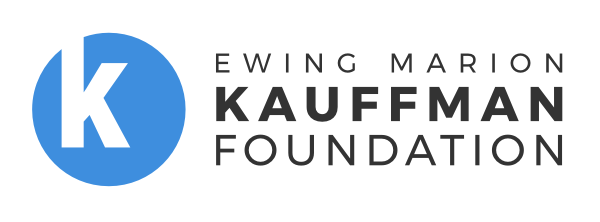Your TL;DR: The Kauffman Foundation requires grantees to measure outcomes and impact. EBHC designs independent, equity-centered evaluation frameworks (e.g., logic models, KPIs, and data dashboards) that demonstrate systemic change and measurable progress. Plan to budget approximately 8% to 12% of the total award for evaluation.
How to Integrate Evaluation into Kauffman Foundation Proposals
The Ewing Marion Kauffman Foundation invests in entrepreneurship, education, and inclusion through grants designed to strengthen innovation ecosystems nationwide. With typical awards ranging from $100,000 to $400,000, and approximately 30–50 grants annually across Project, Capacity Building, Research, and Collective Impact categories, Kauffman prioritizes learning and measurable impact.
Evaluation is not an afterthought; it is a core expectation across all Kauffman grantmaking. The foundation makes this explicit: “Evaluation — We measure outcomes and processes to identify strengths and areas for growth, assessing the effectiveness and impact of our initiatives.” — Kauffman Foundation. “Measuring impact, communicating findings, and disseminating learnings are priorities for the Kauffman Foundation. We encourage applicants with skillsets in evaluation, translation, and impact to emphasize this experience in their proposals.” — Kauffman Foundation
Evaluation, therefore, is woven into Kauffman’s inclusive entrepreneurship strategy. It is how the foundation ensures its investments generate systemic, equitable change rather than isolated success stories.
Why Evaluation Matters for Ecosystem and Inclusion Grants
Kauffman’s mission goes beyond program delivery; it seeks to build ecosystems that sustain inclusive entrepreneurship. Evaluation provides the data to prove whether initiatives are achieving that systemic transformation. Grantees are expected to demonstrate that their projects:
- Broaden equitable access to entrepreneurship resources;
- Increase participation among underrepresented founders; and
- Strengthen local innovation capacity for long-term sustainability.
Programs that lack credible metrics or evidence frameworks risk appearing disconnected from Kauffman’s data-driven learning culture. EBHC bridges that gap by helping applicants translate vision into measurable, verifiable impact.
Budgeting for Evaluation: Aligning with Kauffman’s Priorities
When it comes to budgeting for evaluation, the Kauffman Foundation takes a practical and transparent approach. Rather than setting a specific cap, the foundation expects applicants to show that evaluation resources are proportionate to the project’s scale and clearly tied to deliverables. In other words, every dollar allocated should tell a story about how outcomes will be measured, analyzed, and shared.
Kauffman’s Project Grant Application Guidelines make this expectation clear, instructing applicants to summarize proposed spending across expense categories and provide a brief narrative explaining the costs necessary to implement the project. Evaluation, therefore, is not a fixed number but a strategic investment—one that demonstrates accountability and alignment with the foundation’s data-driven mission.
Drawing from experience with philanthropic and federal evaluation standards, we typically recommend dedicating 8–12% of total direct costs to evaluation (unless there is specific language in the solicitation that says otherwise). This level of investment supports the full lifecycle of measurement: developing a baseline logic model and KPIs, conducting mid-term equity and participation analyses, and preparing final impact and learning reports that synthesize findings and lessons learned.
Each EBHC budget justification is crafted to reflect Kauffman’s own guidance:
“This brief guide is intended to help you create key metrics that will form the basis of reporting and learning throughout the grant period.” — Kauffman Foundation
By aligning evaluation activities and resources with Kauffman’s expectations, EBHC helps applicants present budgets that are not only compliant but also mission-consistent, transparent, and reviewer-ready, demonstrating a clear commitment to learning and measurable impact.
Why Us
The Kauffman Foundation looks for evaluation partners who bring rigor, empathy, and equity to their work—partners who balance analytical precision with an understanding of the people and communities behind the data. We embody that balance.
Our evaluations go beyond simply meeting expectations. We help our partners quantify systemic change, demonstrate inclusive impact, and build the internal capacity to use data for informed decision-making. In doing so, we not only strengthen project outcomes but also enhance each organization’s potential for renewal and expansion funding.
By combining deep methodological expertise with a human-centered approach, we transform evaluation from a compliance requirement into a strategic advantage. Our goal is to turn every metric into insight and every finding into action, helping our partners grow stronger, smarter, and more sustainable.
Schedule a consultation with us today to integrate a data-driven, equity-centered evaluation plan into your Kauffman proposal; one that measures outcomes, demonstrates impact, and builds a lasting culture of learning and improvement.
Ready To Take the Next Step?
We assist our clients in locating, applying for, and evaluating the outcomes of non-dilutive grant funding. We believe non-dilutive funding is a crucial tool for mitigating investment risks, and we are dedicated to guiding our clients through the entire process—from identifying the most suitable opportunities to submitting and managing grant applications.
